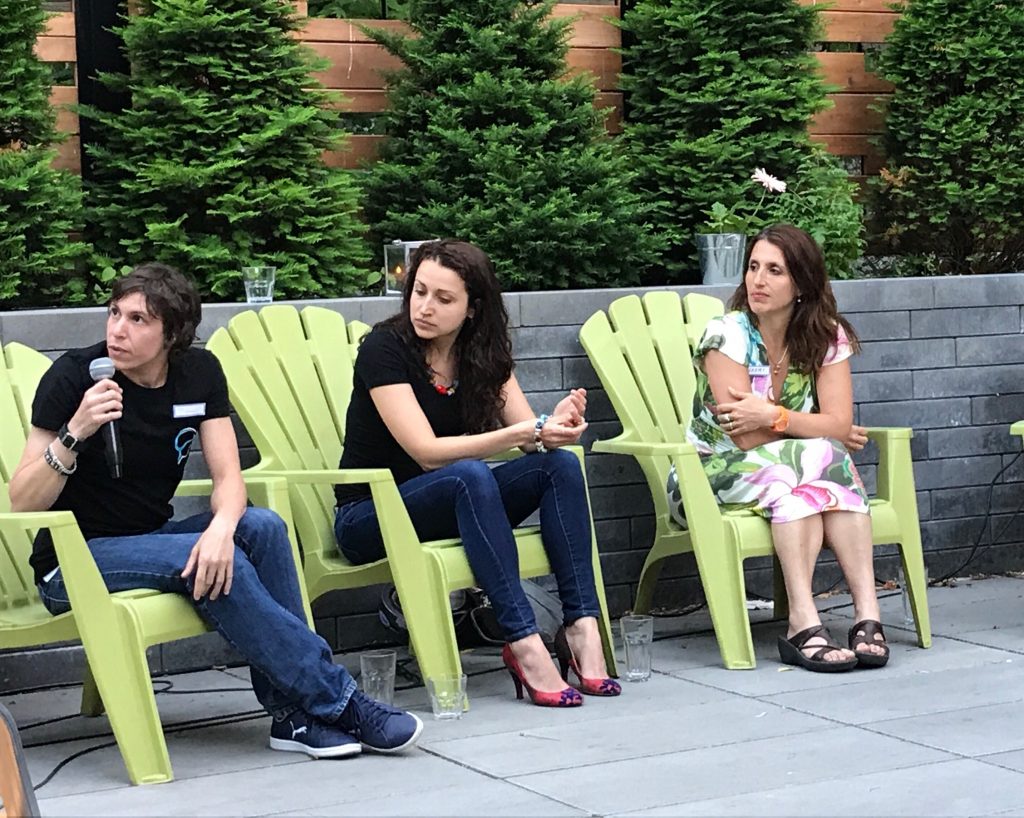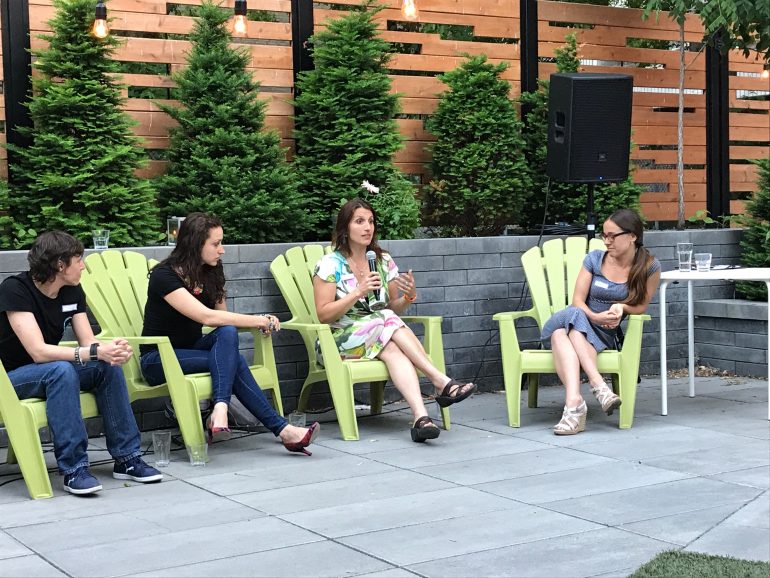On the sunny terrace of Notman House in Montreal this past Tuesday, a panel of experts on AI health spoke about the exciting potential of this industry, and the ways in which we can improve care, lengthen human lifespans, and tackle prevention rather than simply reacting to symptoms when people are already sick.
While AI-centred events have become weekly occurrences in the Montreal tech scene, there was something different and wonderful about the Product Hunt MTL: Health x AI event. That’s not just because the healthcare industry has the potential for some of the most exciting life-altering changes as a result of AI advances, but also because the panel consisted exclusively of women who are driving development in this exciting industry.
Moderated by Irene Pylypenko, head of platform at Carebook — who said that she wakes up each morning excited by the concept of democratizing healthcare, data, and access — the panel included Lisa Di Jorio, machine learning specialist at Imagia; Naomi Goldapple, program director at Element AI; and Anna Chif, co-founder of Dialogue.
“There’s a lot of untapped data and untapped opportunity out there.”
For those still afraid that AI is going to render their jobs obsolete, the discussion would have put their minds at ease: for the companies present, the goal is not to replace humans, but to make their jobs easier by automating certain tasks and relieving part of the burden placed on doctors, nurses, and other health practitioners.
“[At Dialogue], we use machine intelligence to make Super Nurses and Super Doctors,” said Chif. “We’re building ways to enable practitioners to be faster and provide better care.”
Di Joria echoed this sentiment, noting that “Our goal [at Imagia] is not to replace anyone, but to help them by removing all the tasks that we can do automatically.”
An example she gave was the process of segmentation, which is a very precise delineation of a tumor that needs to be done before surgery. “It takes a lot of time,” she continued, “…and this can be helped by AI and validated by a radiologist or a surgeon, so we can remove the burden and let them do the really important tasks — the tasks that we will always need a human to do.”

“I think this is the most exciting area where we can really leverage AI technologies to actually do good for humanity,” Goldapple agreed. “There’s a lot of untapped data and untapped opportunity out there, and if we can focus the efforts, then we can not only lengthen the lifespan of humans but we can also alleviate a lot of suffering.”
As noted by Yoshua Bengio at the AI Forum in Montreal, healthcare is one of the fields in which some of the biggest advances can be made, not just in terms of using AI to improve processes, but also because it can solve problems of access to care in places where there are few doctors. Some of the advantages brought up in the panel included better understanding of our own health, thus removing the need to sit in waiting rooms; identifying disease or disability at a much earlier stage, and therefore being able to treat these problems more effectively; prediction of suicide or psychotic episodes, which give doctors the ability to intervene; and using AI to assess scans and other tests when a medical practitioner cannot be present.
Enjoying this beautiful evening @notman #producthuntmtl #healthAI #AI pic.twitter.com/PzCWSCaOnt
— Sonia Basili (@sonia_basili) June 13, 2017
“Knowing more about yourself and people around you allows you to take earlier action,” said Chif. “Currently, the medical system is very reactive, where you come in with a symptom. But how do you prevent it? What are the triggers you can catch earlier and how do you detect them? How do you do it in a way that’s scalable and not necessarily dependent on a practitioner? And that’s where the data comes in.”
Dialogue works with companies to connect their employees with healthcare practitioners for any well-being or health-related purposes. Their AI does the initial work: asking basic questions about personal history and symptoms, and as soon as something comes up that the AI can’t handle, a human jumps in and takes over the case.
“It’s a way to innovate and create access to something where not only can we give the power to the individual to manage their healthcare at the moment they need it,” said Chif. “But it’s also to create that bridge and put people in touch with the amazing practitioners we have in Canada.
“We’re going to change the way we treat patients, and I’m hoping that we’re going to increase the life[span] of people. It’s really a game changer.”


